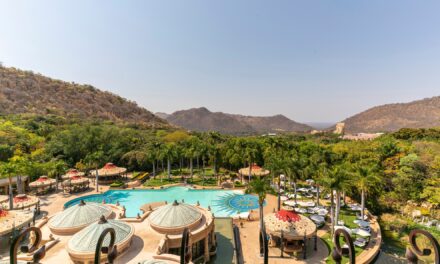As the world grapples with the effects of climate change, consumers are becoming more in-tune with how their decisions impact the environment and societies. In line with this shift in consciousness, eco-tourism or ‘green travel’ has risen in popularity, with travellers actively seeking destinations and experiences that have a low carbon footprint. South Africans are no stranger to this new approach to travel and young generations are leading the charge.
According to recent research conducted by the M&C Saatchi Group South Africa, as much as 63% of South African millennials consider themselves to be environmentalists. Furthermore, even under the pressure of a tough economic climate, well over half of millennials try to buy exclusively from brands and businesses that are socially and environmentally responsible.
These findings are in line with the global trend towards ‘conscious consumerism,’ whose effects are spilling over into sectors like international travel. Sustainable travel is currently one of the fastest-growing sectors of the tourism industry. World Metrics found that with its annual growth rate of between 20% – 34%, the global ecotourism market is set to reach over $330 billion by 2027.

A better way to see the world
Eco-tourism destinations typically operate according to a mandate that prescribes ways in which the destination or establishment can conserve and protect the natural habitat in which it is based. And while eco-tourism is often thought of as being aligned with environmental preservation, it also involves an important component of community support.
Many ‘green’ destinations provide much-needed employment opportunities for local community members and support the development of the economy by working with local suppliers, small-scale producers and artisans. Many eco-tourism operators also donate a portion of their proceeds to community development and upliftment projects as well as practices aimed at protecting the region’s natural resources.
To this point, World Metrics estimates that eco-tourism can generate three times more revenue for local communities when compared to traditional tourism. Currently, sustainable travel also supports the conservation of around 20 million hectares of protected land and regions around the world.
Thailand: a model for responsible travel
Thailand is at the top of the travel to-do lists of many green travellers, including South Africans, many of whom enjoy the fact that there are many tour operators who offer immersive and authentic travel experiences based within local villages.
Commenting on this is Chaiwat Tamthai, Director of the Tourism Authority of Thailand in Dubai for the Middle East and Africa who says that “Thailand is deeply committed to eco-tourism, as it allows us to preserve our natural beauty while sharing our culture with the world.
We’re proud to say that our efforts towards making Thailand one of the world’s most popular eco-tourism destinations have been recognised by a number of awards platforms. One of these is the Green Destinations Top 100 Stories initiative, which celebrates and promotes 100 global locations and businesses that set the benchmark for sustainable travel every year.
Last year, four Thai towns – Hua Hin, Mueang Kao Sukhothai, Khlong Thom, and Nan Old City – were featured in the top 100 list, for showcasing exemplary destination management practices toward a responsible future for tourism.
We’ve also launched our own internal initiatives to encourage the growth of eco-tourism, including the annual Reponsible Thailand Awards, which celebrates the achievements of individuals and organisations who champion responsible travel. These awards also make it easy for aspiring green travellers to access this list of leading organisations and destinations – your next eco-tourism haven is just a click away.”
Top picks for eco-tourists
Some of Tamthai’s favourites include the Devasom Khao Lak Resort and beachfront hotel in the Khao Lak region, which has become a true local gem within the community. Tourists who stay at the hotel will have access to the best experiences of local heritage at the community’s temple and shrine. The hotel also employs many local residents from the surrounding areas and sources products from Thai artisans, whose crafts are available at the onsite Artisan’s Shop. Visitors who want to incorporate some feel-good community service into their trip can also participate in the hotel’s regular beach clean-ups.
Also, one of last year’s winners in the Responsible Thailand Awards was the Pattaya Elephant Sanctuary, which is a sanctuary for rescued elephants. The haven prides itself on its ‘saddle off’ model which allows the elephants to live as naturally as possible within their habitat, while still allowing for limited interaction with visitors who have the privilege of seeing and experiencing these majestic beasts close up.
For a taste of Thailand’s world-renowned cuisine, with a generous dash of authentic goodness, travellers should visit the Kao Tep Pitak Community Restaurant. This establishment was the winner of the Community-Based Tourism Award for inviting visitors from all over the world to experience what life is like in a Thai village. Here, visitors can enjoy a local southern Thai meal while learning more about the work being done by farmers in the region’s fruit orchards as well as the local artisans.
Once a trend, now a new norm for travel
“What was once regarded as a trend has become a new way of thinking about travelling the world – a better, gentler way of building a tourism industry that protects the spaces and places we hold dear as Thai people.
Eco-tourism represents a critical movement toward balancing tourism with environmental and social responsibility. By promoting this positive change, we can ensure that future generations can continue to experience the richness of Thailand’s natural and cultural heritage,” says Tamthai.



























